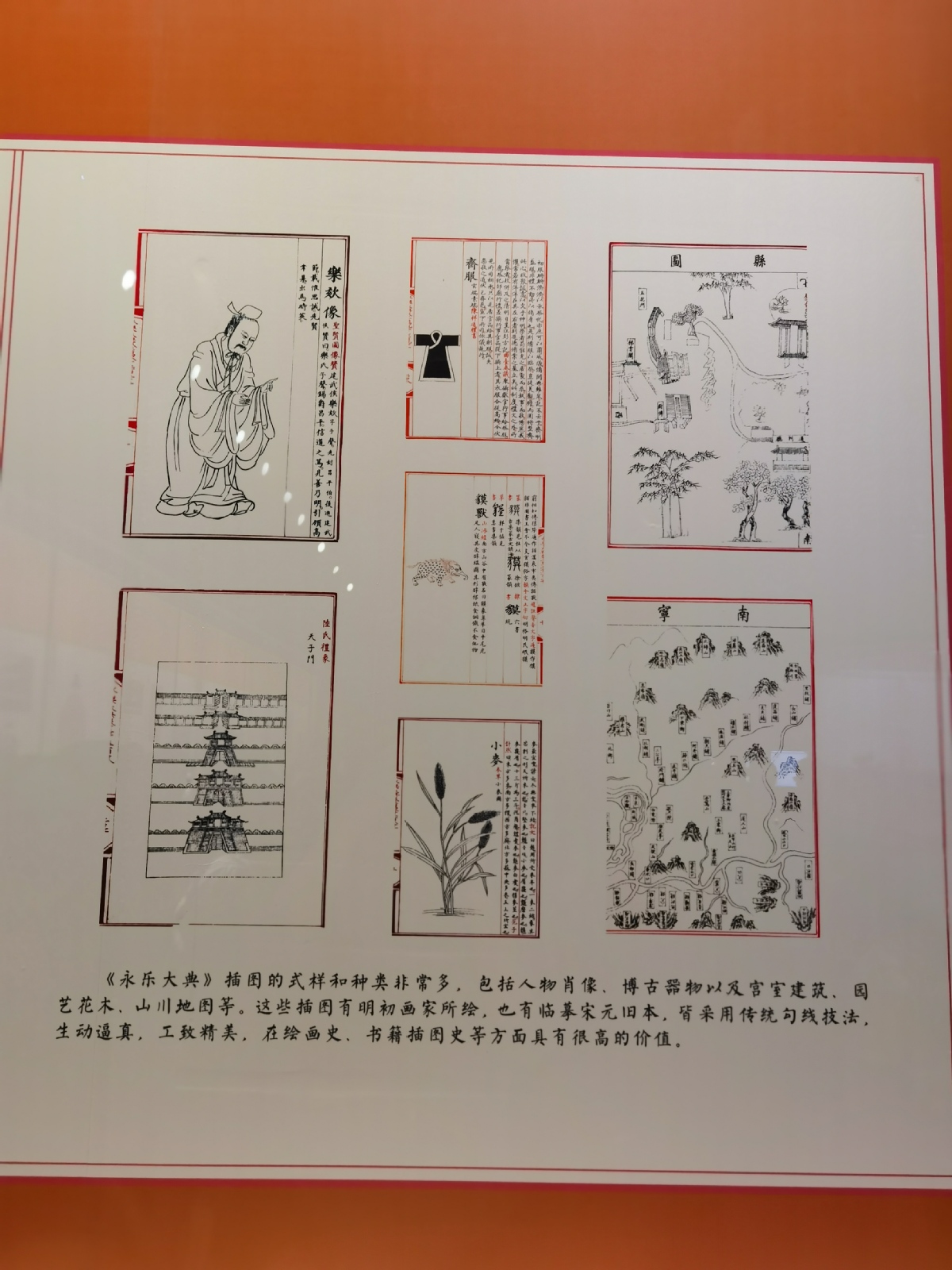Prized encyclopedia to be studied at home and abroad


Retrieval efforts
After the monarchy fell, remnants of Yongle Dadian were included in the first collections at the National Peking Library-now the NLC. In 1912, the author Lu Xun, an official with the Ministry of Education, led a campaign to bring the former royal collection to the library.
Since then, scholars, collectors and librarians nationwide have devoted their efforts to retrieving lost copies of the work, either through donations or by buying them in China and overseas. The volumes they obtained were brought to the national library.
Lost copies were also returned through diplomatic channels. For example, in 1954, the Soviet Union sent 52 copies to China, while the following year, three were returned from East Germany.
Thanks to these efforts, in recent decades, the national library has housed the biggest collection of Yongle Dadian.
Chen Hongyan, deputy director of the ancient books department at the library, said the institution now has 224 copies of Yongle Dadian, including 62 temporarily stored at the National Palace Museum in Taipei.
During World War II, the copies now in Taipei was secretly taken to the Library of Congress in the United States to avoid them being seized by Japanese invaders. They were brought to Taiwan in 1965.
"The number of copies seems tiny among the 40 million books in our library, but they are a milestone for the lineage of Chinese culture," Chen said.
The 400-odd copies of Yongle Dadian known to exist are in the hands of 30 public institutions or collectors in seven countries, Chen added.
In July, two copies surfaced at an auction in France despite the encyclopedia not being thought to exist in that country. They were bought by a Chinese collector for 65 million yuan ($10 million).
Although the French auction house claimed both copies were bought from a Qing Dynasty official in the 1870s, Zhang doubted this and said they may have found their way overseas through different routes.
He said one copy is a successor to a volume in the British Library, and the other is a predecessor to a volume that is now in Vietnam.
Zhang, from the National Center for Preservation and Conservation of Ancient Books, said, "It's probably no coincidence, because the French School of the Far East (an Asian studies academy) operated in Vietnam during the colonial period."
Another copy, bought for "a relatively low price" by the NLC from a Canadian Chinese collector in 2013, includes a section on the character hu (lake), as do two other copies already housed at the library.
Zhang said: "There are so many clues to clarify. After establishing the new research center, and completing more cross-border joint studies, we expect to get a clearer picture of how copies of the encyclopedia became scattered worldwide."
























